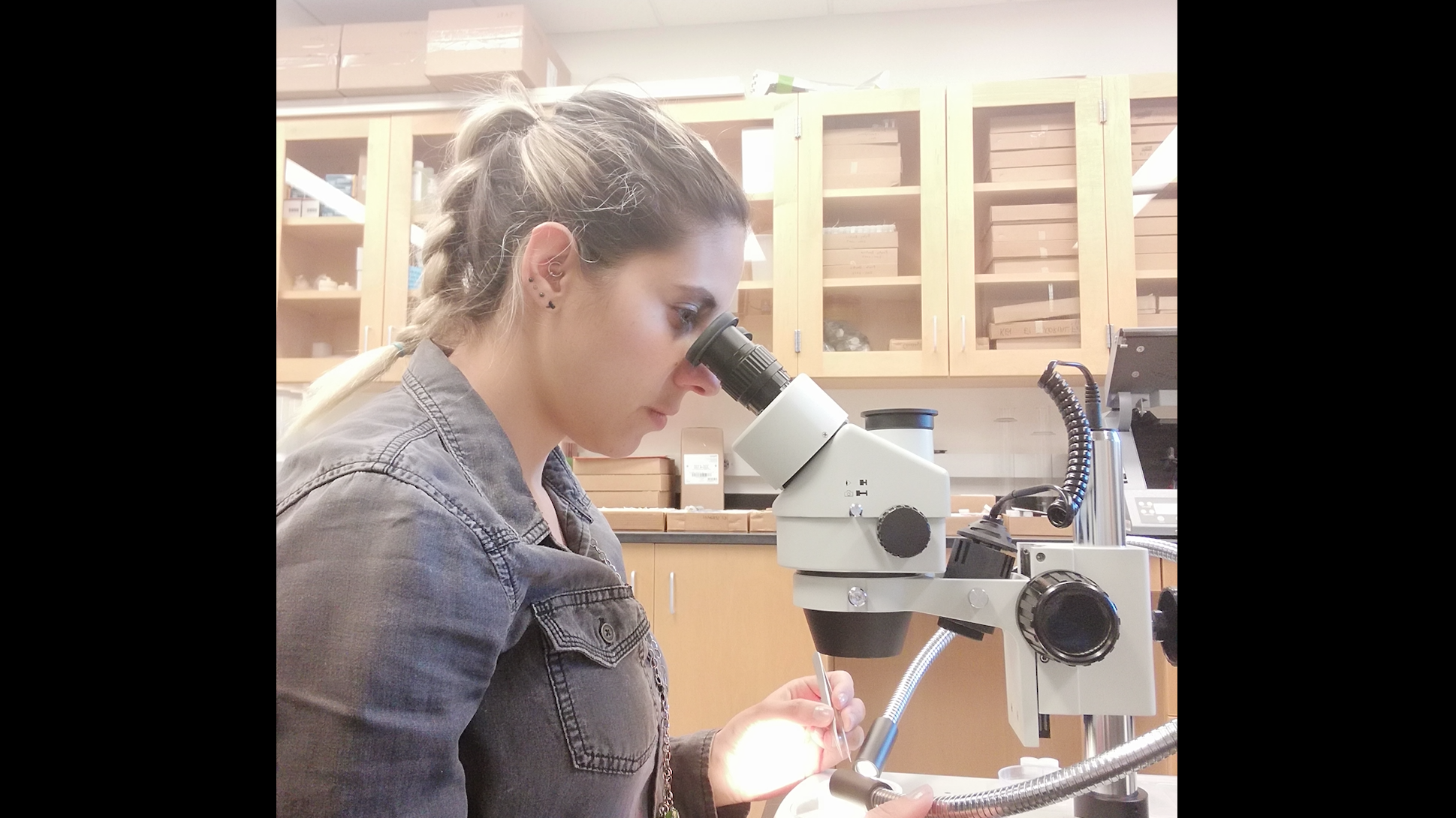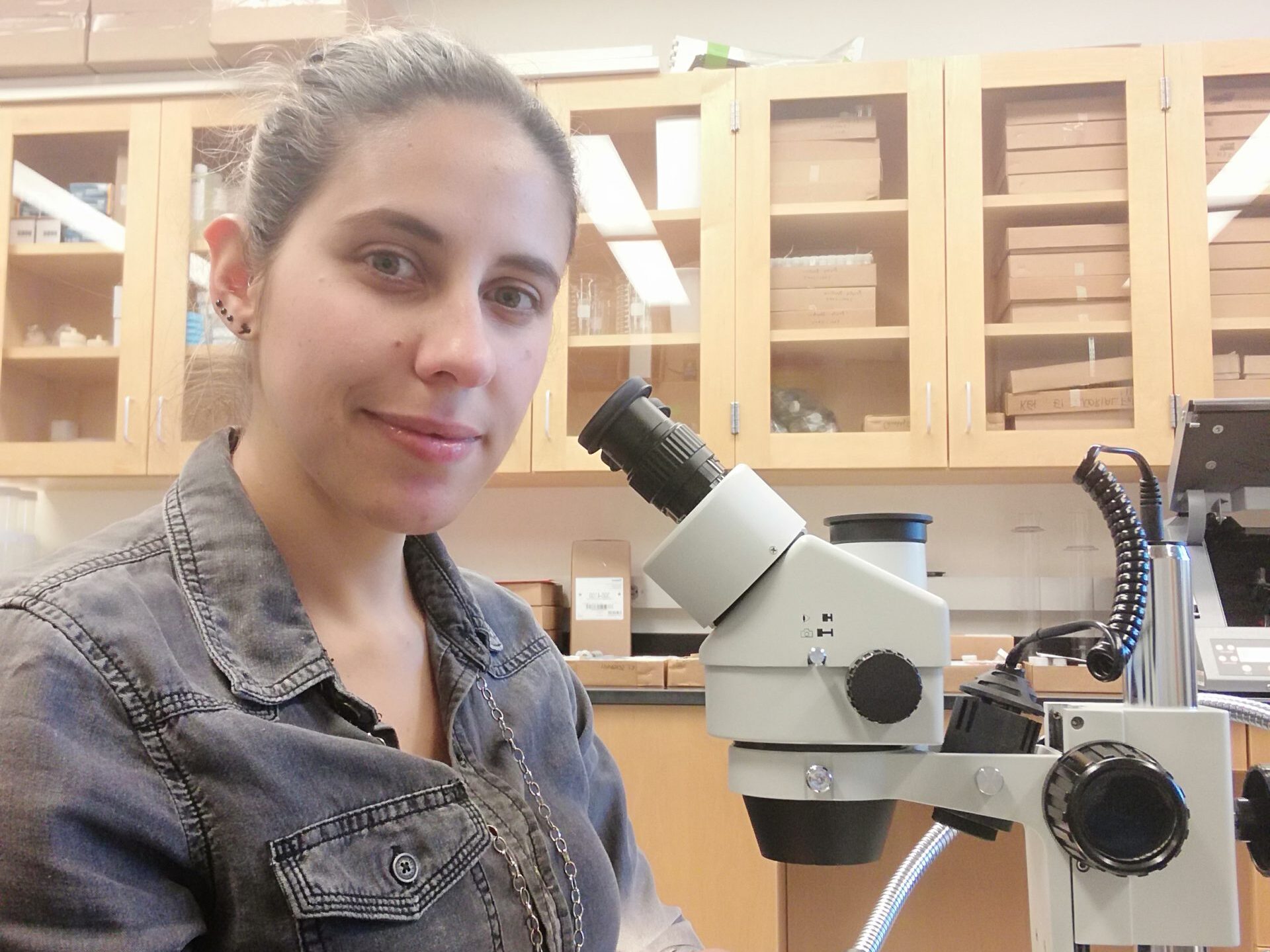Researcher Spotlight – Ana Meza Salazar

2019-20 Global Change Fellow
PhD Student, Department of Applied Ecology
Advisor: Dr. Alonso Ramírez
Every year the Southeast Climate Adaptation Science Center funds a multi-disciplinary cohort of Global Change Fellows representing colleges across NC State University. Here are some highlights about 2019-20 Fellow, Ana Meza Salazar, and the applied research she’s conducting.
About You
What do you study?
I am focusing on the effects of climate change on lowland forest streams in Costa Rica. Dr. Ramirez has been working in those ecosystems for several years and their research project has identified that streams experience periodic acidification events associated with climate patterns. For my dissertation, I will focus on assessing how predicted climate change will affect the Caribbean region of Costa Rica and how those changes might alter stream ecosystems via acidification.
What (or who) influenced you to go into this field of study?
I have worked in freshwater ecology for several years; however, I have never had the opportunity to study the effects of climate change on water resources. For this reason, I have found interesting the work that Dr. Ramírez and his team have been doing at the La Selva Biological Station (Costa Rica) for several years. I think it is essential to study the functioning of aquatic ecosystems to understand their possible responses to climate change.
What is your dream job?
I want to work in a university or research center, I would like to teach and share with the students all the experiences and knowledge acquired in research and projects. I would also like to continue with my research career, and conduct studies on the effects of climate change and human activities have on aquatic ecosystems and in the communities that inhabit there.
What do you think is the most pressing issue related to global change?
Understand that climate change is a fact, and it is urgent to generate policies that contribute to the reduction of its effects.
About Your Research

What results are you finding?
Since this is my first semester, I still don’t have results from my research. However, I have learned about climate change from different perspectives and about the dynamics in Costa Rica’s freshwater ecosystems, and the macroinvertebrates present there.
Who will benefit from your research?
The local community will benefit because they use water sources for different purposes. I hope that managers will use the information obtained as a tool to generate conservation plans to prevent the possible effects of climate change.
How would you describe your research to a 3rd grader?
I would tell them that in my research, I study how climate change (rains, drought, etc.) affects streams and the animals that live there. I would explain to him that this would also affect us since freshwater is indispensable for our lives.
About Your Global Change Fellow Experience
How do you expect the SE CASC Global Change Fellows Program to impact you and your work?
The SE CASC Global Change Fellows Program has impacted me by providing me with tools and knowledge to make decisions. It has allowed me to know different points of view, different people, and different topics of study. It has been fruitful feedback, and I have learned a lot from my colleagues and experts in many disciplines.
What has been the most rewarding part of being a SE CASC Global Change Fellow?
The most rewarding part of being a SE CASC Global Change Fellow has been being able to share with my colleagues and experts on different topics and learn about their research.
What advice would you give to a student that is interested in getting involved in your field?
I would advise them to be outside, to observe, and to be curious about everything they see. I would tell them to read a lot about the topic they are passionate about and talk to people and experts about it. Networking with people is essential to develop a career.
